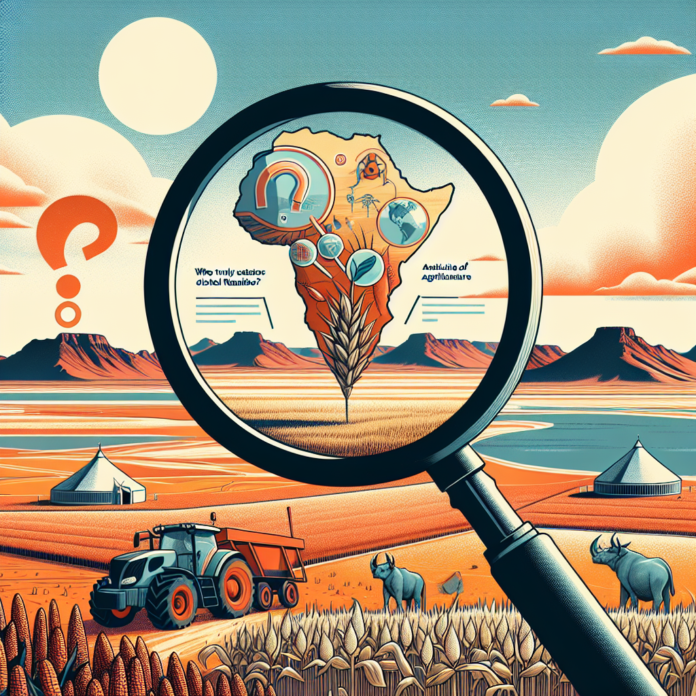Exploring Namibia’s Food Sources and Vandana Shiva’s Agricultural Critique
“`html
Who Truly Sustains Namibia? An Examination of Vandana Shiva’s Critique of Global Agriculture
In recent years, the discourse surrounding global agriculture has gained significant traction, particularly through the lens of activists and scholars like Vandana Shiva. Her critiques challenge the prevailing narratives about food production, distribution, and sovereignty, particularly in contexts like Namibia, a country facing unique agricultural challenges and opportunities.
The Context of Namibia’s Agriculture
Namibia, characterized by its arid climate and diverse ecosystems, presents a complex agricultural landscape. The majority of its population relies on subsistence farming, yet the country grapples with issues such as land degradation, water scarcity, and the effects of climate change. These factors complicate food security and the ability of local farmers to sustain their livelihoods.
Vandana Shiva’s Perspective
Vandana Shiva, an Indian scholar and environmental activist, argues against industrial agriculture, emphasizing its detrimental effects on local farming practices, biodiversity, and food sovereignty. Her critique extends to multinational corporations that dominate the agricultural sector, often prioritizing profit over the well-being of communities. Shiva advocates for agroecology, a sustainable farming approach that respects local knowledge and ecosystems, arguing that it can empower farmers in Namibia and other regions to reclaim their food systems.
Food Sovereignty and Local Empowerment
The concept of food sovereignty is central to Shiva’s philosophy. It asserts that communities should have the right to define their own agricultural systems, focusing on local production methods that are environmentally sustainable and culturally appropriate. In Namibia, promoting food sovereignty could lead to increased resilience against external market fluctuations and enhance the nutritional security of local populations.
Challenges and Opportunities
While Namibia has made strides toward improving its agricultural practices, challenges remain. Access to resources, education, and technology is uneven, leaving many farmers vulnerable. However, initiatives aimed at supporting smallholder farmers and promoting sustainable practices could align with Shiva’s vision. Programs that incorporate indigenous knowledge, improve water management, and encourage agroecological methods can strengthen local food systems.
Conclusion: A Path Forward for Namibia
As Namibia navigates its agricultural future, the critiques put forth by Vandana Shiva offer valuable insights. By prioritizing local knowledge and sustainable practices, Namibia can empower its farmers and build a more resilient food system. The journey toward food sovereignty may be challenging, but with concerted efforts, Namibia can redefine who truly feeds its people and ensure a sustainable future for generations to come.
“`


